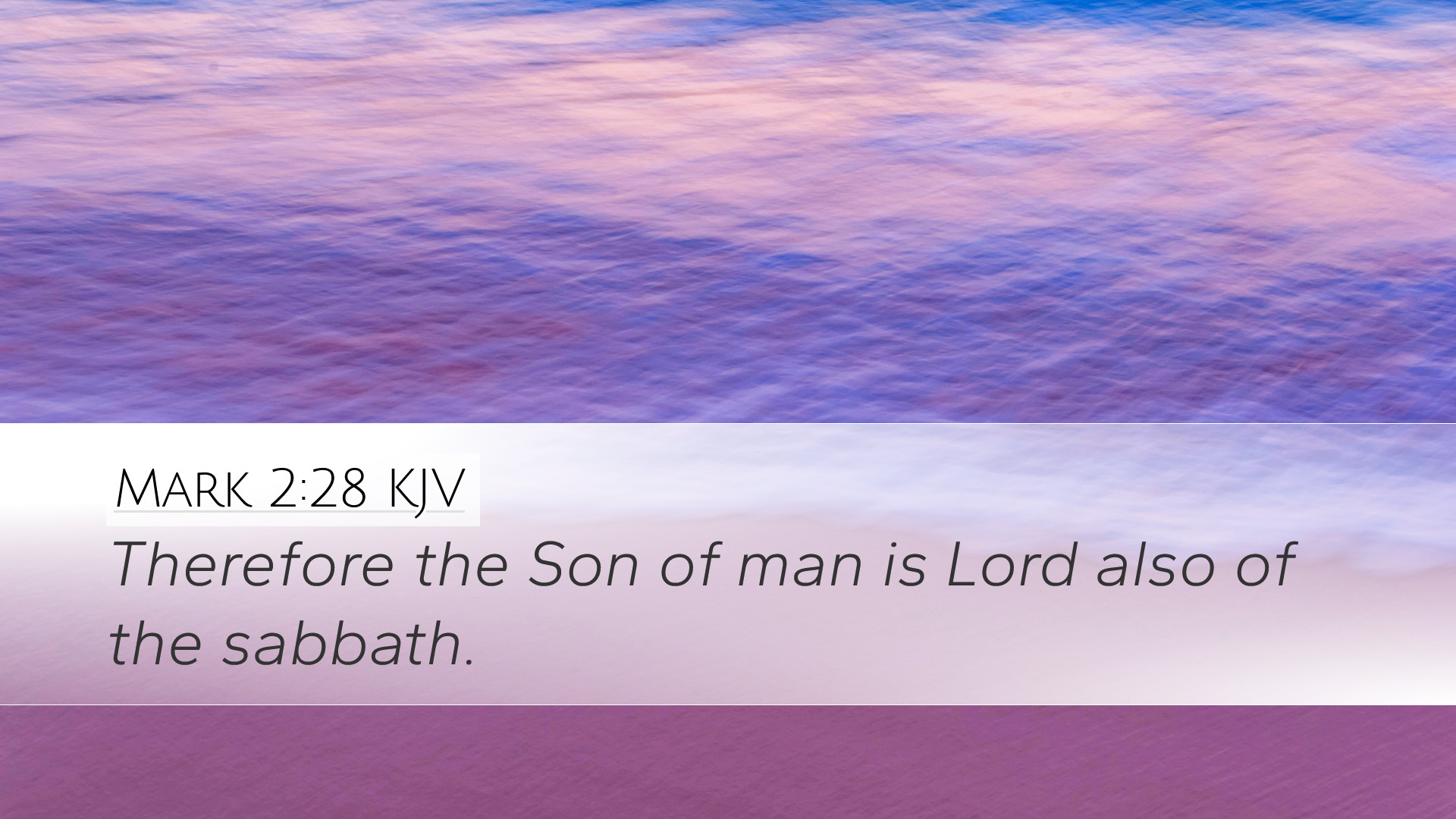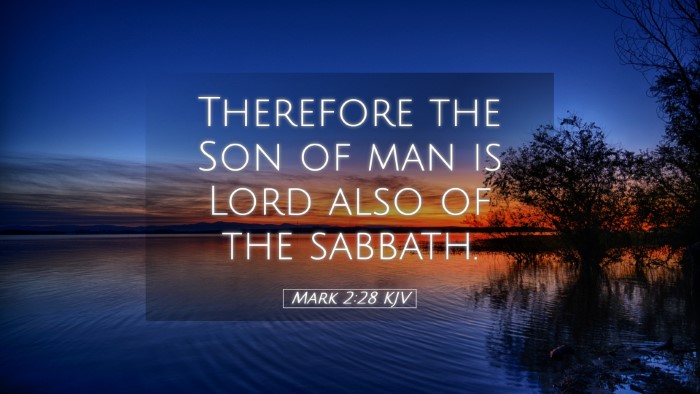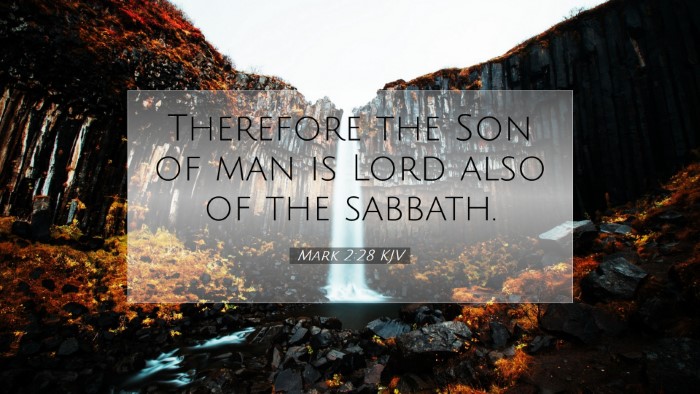Old Testament
Genesis Exodus Leviticus Numbers Deuteronomy Joshua Judges Ruth 1 Samuel 2 Samuel 1 Kings 2 Kings 1 Chronicles 2 Chronicles Ezra Nehemiah Esther Job Psalms Proverbs Ecclesiastes Song of Solomon Isaiah Jeremiah Lamentations Ezekiel Daniel Hosea Joel Amos Obadiah Jonah Micah Nahum Habakkuk Zephaniah Haggai Zechariah MalachiMark 2:28
Mark 2:28 KJV
Therefore the Son of man is Lord also of the sabbath.
Mark 2:28 Bible Commentary
Commentary on Mark 2:28
Verse Context: Mark 2:28 states, "Therefore the Son of Man is also Lord of the Sabbath." This declaration by Jesus comes during a confrontation with the Pharisees regarding the observance of the Sabbath. The importance of this statement cannot be overstated, as it encapsulates the authority of Christ over one of the key aspects of Jewish law.
Analysis of the Verse
This verse is pivotal because it identifies Jesus not only as a prophet or teacher but as Lord, asserting His divinity and authority over religious practices.
Matthew Henry's Commentary
Matthew Henry emphasizes the supremacy of Christ over religious traditions. He elucidates that the Sabbath was made for man, not man for the Sabbath (an allusion to Mark 2:27). Pastor Henry argues that Christ as Lord of the Sabbath implies a restoration to the original intent of the Sabbath—a day designed for humanity’s benefit, not a burden. He stresses the necessity of spiritual reflection and mercy, which should supersede rigid adherence to the law.
Albert Barnes' Commentary
Albert Barnes draws attention to the implications of Christ's lordship over the Sabbath. He explains that this authority allows for a fresh understanding and application of the law. Barnes points out that Jesus' declaration suggests a new covenant relationship, where ceremonial law is transformed through Christ’s teachings. He also connects the concept of the Sabbath with the rest that Jesus offers to believers, emphasizing the spiritual rest found in faith in Christ rather than merely in physical observance.
Adam Clarke's Commentary
Adam Clarke elaborates on the historical and theological dimensions of the Sabbath law. He discusses how the Pharisees had burdened the Sabbath with numerous man-made laws, which obscured its purpose. Clarke notes that Jesus’ assertion of His authority as the Son of Man highlights the divine prerogative to redefine Sabbath observance. He concludes that believers are called to prioritize mercy, love, and the spirit of the law over mere ritualistic practices.
Theological Implications
The acknowledgment of Jesus as Lord of the Sabbath carries profound theological implications:
- Authority of Christ: Jesus’ claim reinforces His divine authority, challenging existing religious structures.
- Purpose of the Sabbath: The Sabbath is a gift for human well-being, emphasizing restoration over legalism.
- New Covenant Understanding: This verse signals a shift from the old covenant to a new understanding rooted in Christ’s fulfillment of the law.
Practical Applications
The insights from Mark 2:28 provoke several practical applications for today's believers:
- Embrace of Rest: In a fast-paced world, the Sabbath invites believers to find true rest in Christ.
- Heart of Worship: Worship should focus on loving God and others rather than merely performing traditions.
- Community and Mercy: Followers of Christ are called to practice mercy and kindness, reflecting the heart of Jesus in their interactions.
Conclusion
Mark 2:28 encapsulates a transformative understanding of the Sabbath in the light of Christ’s lordship. The commentaries by Matthew Henry, Albert Barnes, and Adam Clarke enrich our understanding of this pivotal verse, offering a framework that challenges believers to approach their faith with a heart aligned with the intentions of God. As they reflect on the authority of Christ, pastors, theologians, and students are invited to embrace a life that honors the essence of rest, mercy, and love that Jesus demonstrated.


